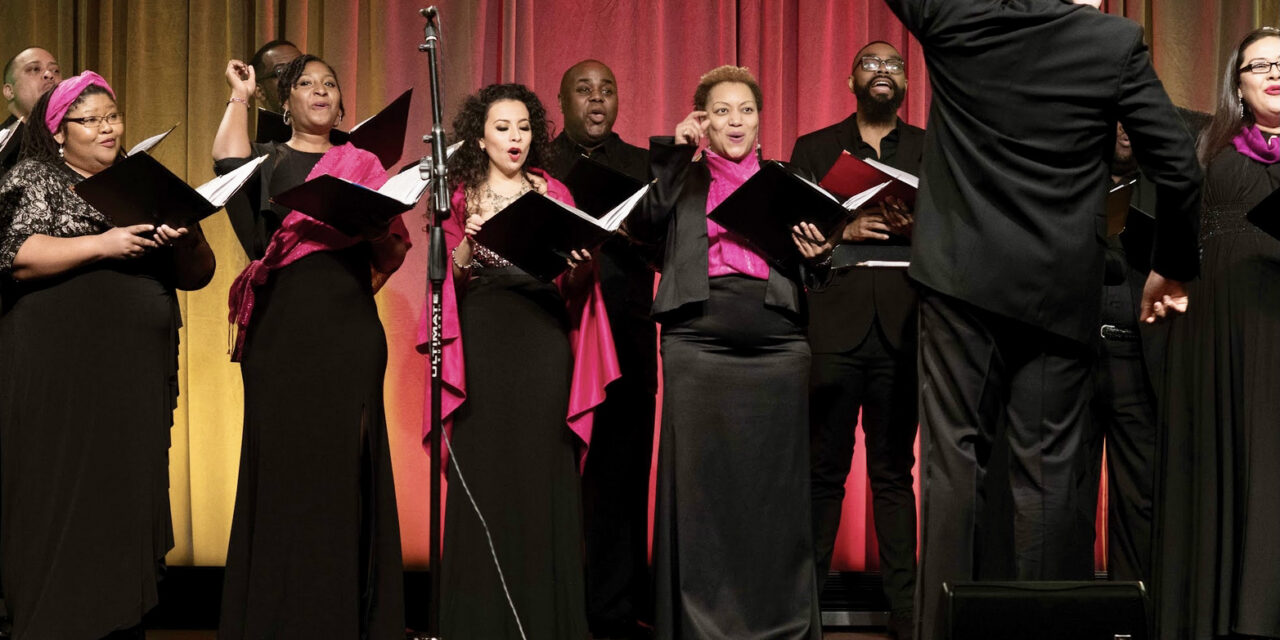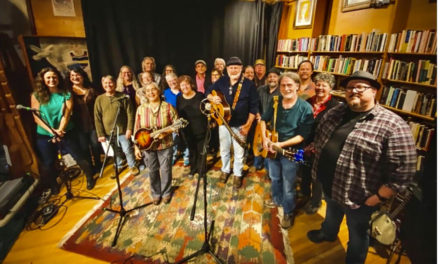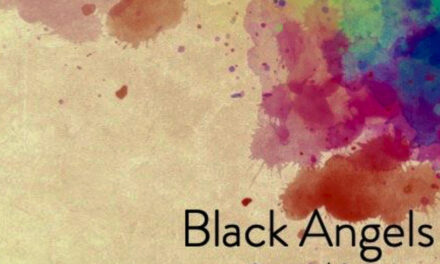By Daniel Buckwalter
There were moments of sorrow, followed by a rousing revival and a focused, elegant history lesson on May 7 in the Hult Center’s Silva Concert Hall.
There was glory.
The Eugene Concert Choir, under the direction of Diane Retallack, was joined by guest choir EXIGENCE, led by Eugene Rogers, for a sterling performance of hymns, a seldom heard 16-part oratorio (Scenes from the Life of a Martyr — about Martin Luther King) and, what a healthy-size audience came specifically to hear, the performance of Seven Last Words of the Unarmed and its companion piece, the choral version of Glory.
The occasion was the Black Is Beautiful concert, and no one left disappointed. It was moving from start to finish.
EXIGENCE, a Black-Latinx choir based in Detroit, Michigan, rightfully led off the concert with strength and grace in singing three hymns — The Hymn!, Fix Me, Jesus, and The Caged Bird Sings for Freedom — that could very well have left listeners feeling as if they were in a quiet sanctuary and in spiritual bliss.
There was a prologue to the main event in which EXIGENCE was joined by the Eugene Concert Choir for Seven Last Words of the Unarmed by Joel Thompson, a composer, pianist, and a member of EXIGENCE who is gaining national acclaim for his talents.
Seven Last Words was composed in 2014 and chronicles the final words during their violent deaths of seven Black men — Kenneth Chamberlain, Trayvon Martin, Amadou Diallo, Michael Brown, Oscar Grant, John Crawford and Eric Garner — six killed by members of law enforcement and one, Trayvon Martin, by a self-styled neighborhood vigilante.
They are seven vignettes which mirror the liturgical structure of Joseph Haydn’s The Seven Last Words of Christ, and they are haunting.
I was particularly struck by the short Diallo vignette, Mom, I’m Going to College, which soloist Tyrese Byrd sang with such soft and powerful sincerity that I had to choke back a tear.
Those poignant words were part of the final phone message the 23-year-old Guinean immigrant left for his mother before he was gunned down in New York City by four police officers who fired 41 shots at the unarmed young man.
To balance such tragedy, Rogers, who teaches at the University of Michigan and helped found EXIGENCE in 1996, arranged Glory for chorale after the musician-actor Common made it popular in the movie Selma, the story of the 1965 Alabama freedom march from Selma to Montgomery. It has to be heard. It does bring a smile of hope. It does make you want to stand and shout.
Retallack took the podium after intermission to direct both choirs and the Eugene Concert Orchestra in the late Undine Smith Moore’s Scenes from the Life of a Martyr, about Martin Luther King, Jr.
It is a historical look in spoken word and song at King’s early life, his manhood and the pain felt after his assassination. It pulls no punches, and with guest soloists Elaine Alvarez (soprano), Rehanna Thelwell (mezzo soprano), Demetrius Sampson (tenor) and Marques Jerrell Rugg (bass and narrator) leading the way, it concludes with a flourish — Tell All My Father’s People Don’t You Grieve for Me (Alleluia).
I would like to say more about the concert. Instead, the Eugene Concert Choir recorded the event and will make it available for streaming this summer. I would strongly recommend that you purchase it.
Because, as the piece Glory notes, the war isn’t yet won, but “One day, when the glory comes / It will be ours, it will be ours / One day, when the war is won / We will be sure, we will be sure.”
And everyone will know some glorious music.












